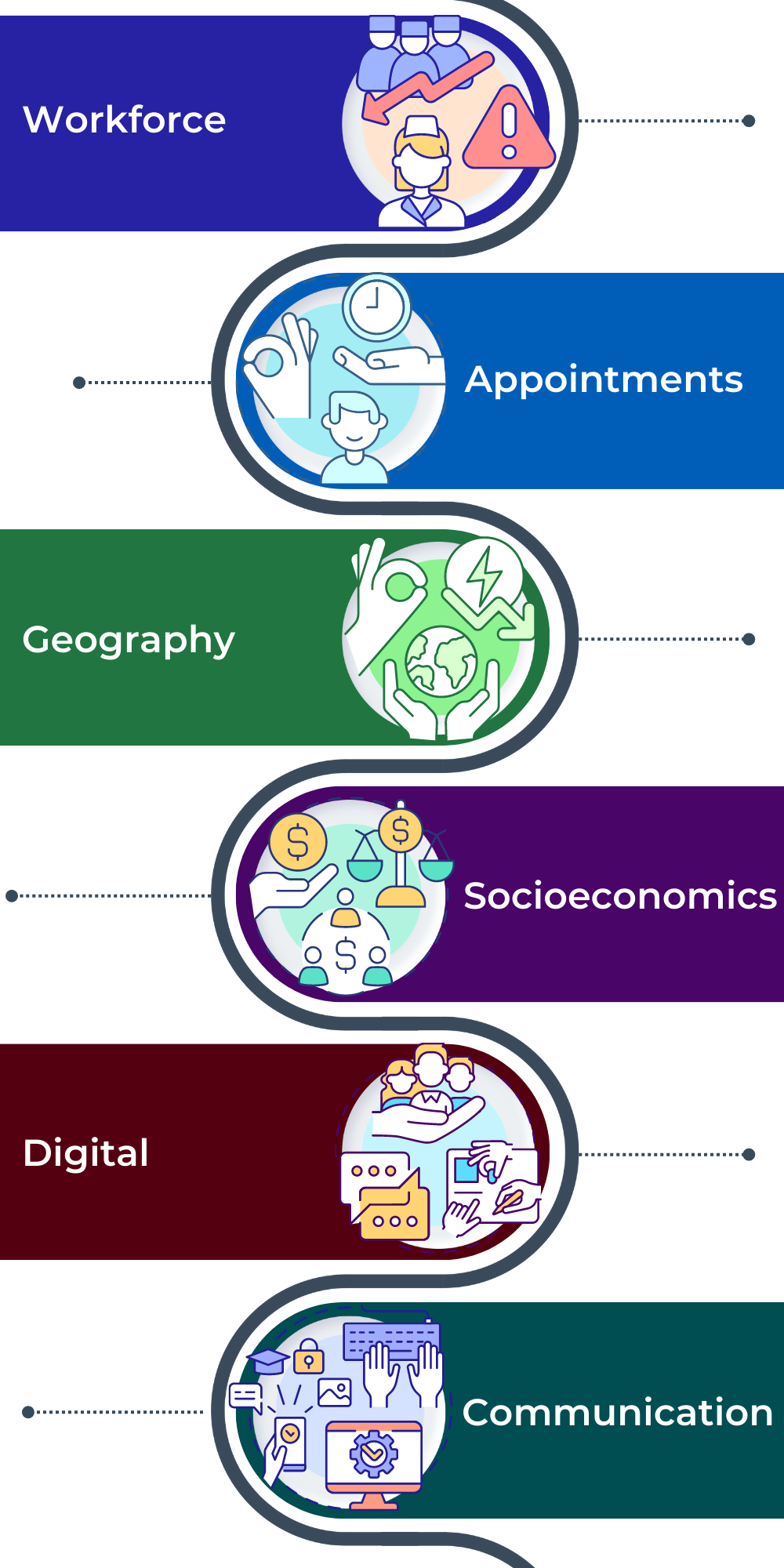Access to quality healthcare is a fundamental right for every individual.
GP practices play a crucial role in delivering primary care services to millions of patients and improving access is a top priority for many practices. However, despite their efforts, there are several challenges that hinder access.
1. Workforce Shortages:
One of the primary challenges faced by GP practices is a shortage of healthcare professionals. With increasing patient demands, limited availability of doctors and nurses puts immense pressure on existing staff. How can we address this shortage and attract more medical professionals to primary care?
2. Appointment Availability:
Long waiting times for appointments are a common concern for patients. Limited appointment slots, coupled with high demand, can result in delayed access. How can GP improve access to ensure timely care delivery while maintaining quality?
3. Geographical Disparities:
In many regions, there are significant geographical disparities in access to GP practices. Rural areas, for instance, often face challenges in terms of physical proximity to healthcare facilities. How can technology bridge the gap between patients and GP practices, particularly in remote areas?
4. Socioeconomic:
Socioeconomic factors can create barriers to accessing primary care. Individuals with low-income or marginalised communities may face challenges in transportation, affordability, or health literacy. How can healthcare systems address these socioeconomic barriers to ensure equitable access for all?
5. Digital Divide:
In today’s digital age, the integration of technology in healthcare is crucial. However, the digital divide poses a significant challenge, particularly for older adults or economically disadvantaged individuals. How can GP practices overcome this divide and ensure that technology serves as an enabler rather than a barrier to access?
6. Effective Communication:
Clear and effective communication between GP practices and patients is vital for delivering quality care. Language barriers, cultural differences, and health literacy levels can impede effective communication. How can GP practices adopt strategies to enhance communication and create a more inclusive environment for patients from diverse backgrounds?
As these questions all show, Improving access to GP practices is a complex task that requires collective effort and innovative solutions. By addressing the challenges mentioned above, healthcare systems can make significant strides towards equitable and accessible primary care for all. It is essential to foster engagement and generate discussions on these issues to drive positive change.
Let’s spark conversations and inspire change


Blog by Marc Schmid
Marc Schmid is an experienced senior manager in both the NHS and local government. He has been responsible for the implementation of digital first programmes across local government and the NHS as well as a range of other exciting digital programmes including remote consultations in primary care and social care, implementation of digital programmes for PCNs, digitisation of Lloyd George records and the rollout of a national programme of video group clinics. Marc’s role is to develop Redmoor Health into a key strategic partner for the NHS and other public sector organisations.
Make an enquiry


